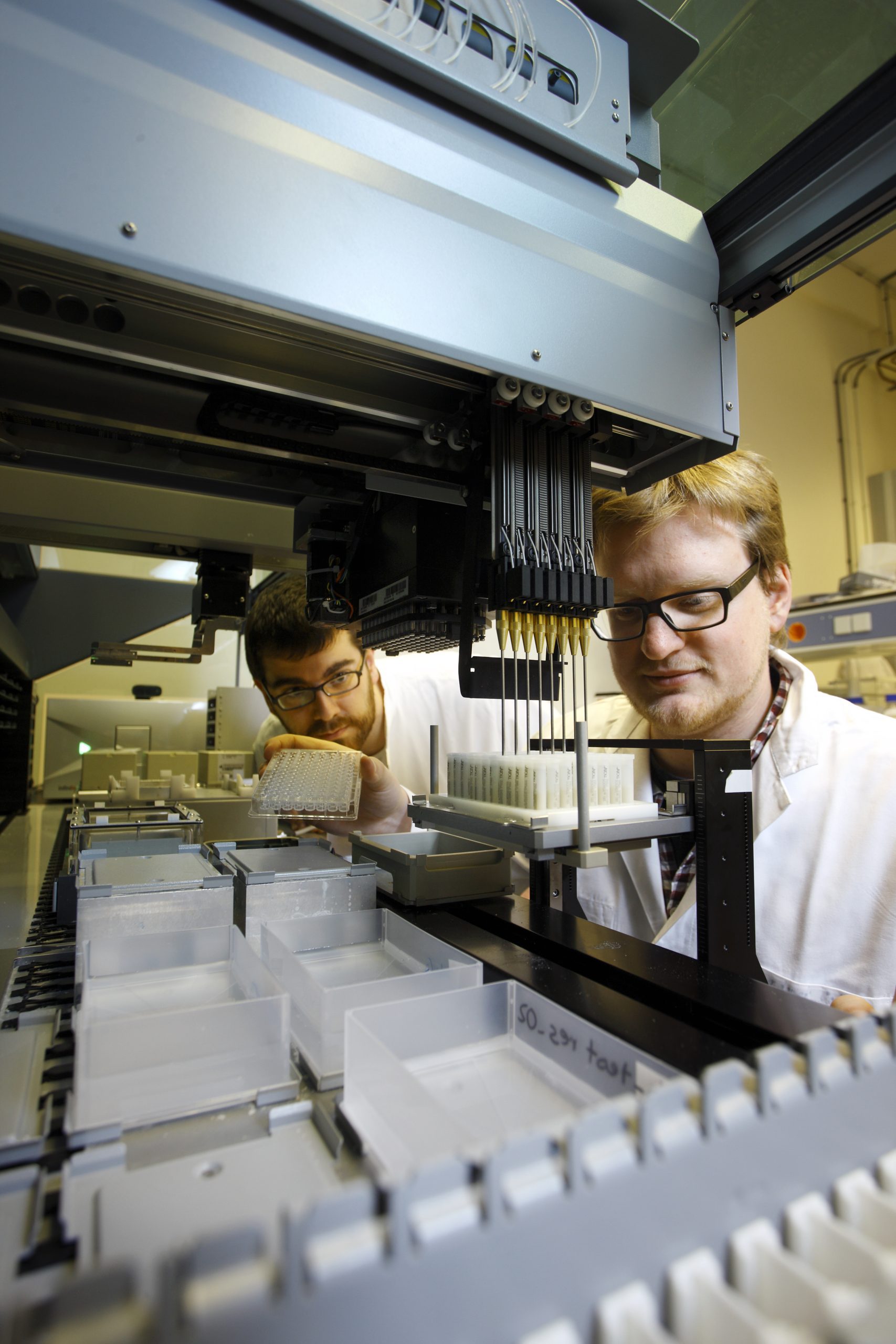In the Biotechnology building overlooking the neighbouring botanical gardens, a large robot is carrying out 96 experiments at once. Known as robotic liquid handling station, the robot is part of the High-Throughput Lab.
High-throughput experimentation is a relatively new technique which has greatly increased the speed in which biotechnologists can perform experiments. The liquid handling station (LHS) is a robotic system that can do most day-to-day lab tasks such as pipetting, mixing and sample analysis. Instead of one large test tube, the machine performs experiments in small trays of 96, therefore increasing the speed of the experiment and decreasing sample consumption.
The lab is not using the robot for clear-cut yes or no answers, but is doing experiments to find out how strongly different components interact. “We are testing the affinity of molecules,” explains PhD student David Mendez Sevillano of Spain. His project focuses on nutraceuticals or healthy plant components. His colleague Alex Hanke of Germany is conducting his PhD research on the purification of pharmaceutical proteins such as monoclonale antibodies. Both students develop tools to isolate one type of molecule from a sample without destroying it. They then can concentrate the components to be used in something else. For example, in nutraceuticals, antioxidants from tea can be added to other foodstuff to make it healthier. Luckily with the help of the LHS, the experiments can be easily translated to industrial scale.
“We want to get closer to knowing what happens in these systems so that we can use that knowledge to design the process,” explains Hanke. With this type of research, it may be possible to manufacture drugs at lower cost and therefore reach more of the population in need.
The LHS is like another student in the lab. Hanke and Mendez Servillano can work remotely while the robot is conducting the experiments they design. They can even Skype in to check on the robot at work.



Comments are closed.